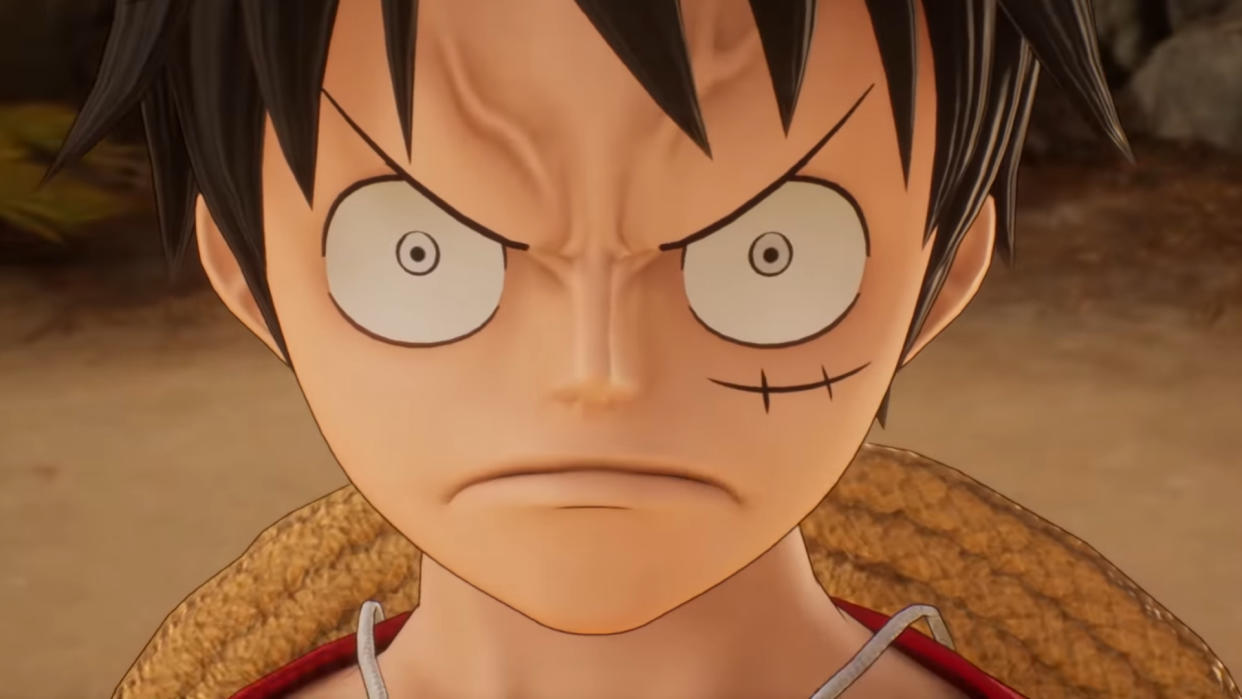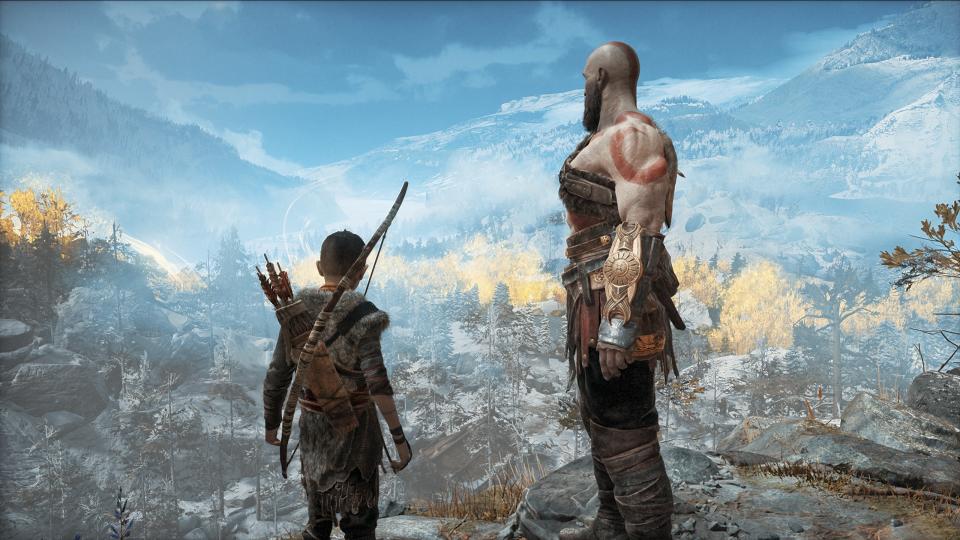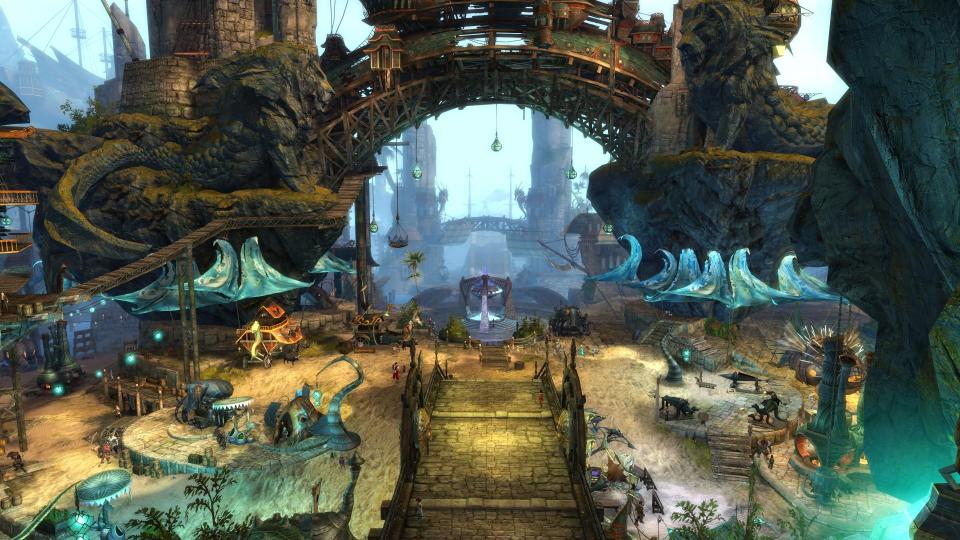Why games are still full of fetch quests in 2024

I have a high tolerance for fetch quests. If Genshin Impact wants me to exterminate the same group of hilichurls over and over to search for a vengeance-obsessed NPC's lost sword, then I'll do it—I've got time to kill. But when an RPG jams that kind of drudgery front and center into the main storyline or sends me down a long, tedious questline with the reward pushed to the very end, even I start to think: is this really the best they could come up with?
At their heart, almost every quest is 'go get a thing' or 'go kill a person'
Fetch quests, which have earned a reputation as the lowest form of RPG sidequest, typically involve finding items and bringing them back to a recipient. The particularly bad ones make you run from area to area between lines of filler dialogue, compounding a boring objective with a limp justification for doing it.
"At their heart, almost every quest is 'go get a thing' or 'go kill a person,'" Avowed game director Carrie Patel said in a recent interview with PC Gamer. "When quests fall flat, it's just because there's not enough interest in what you're doing."
Last year in One Piece Odyssey I did entirely too many errands for NPCs in the desert town of Alabasta, each of them telling me that I ought to ask the other guy for a key I needed to progress in the story. Honkai: Star Rail, a game I publicly love, also dragged me through fetch quests for its Belobog museum event. It was a chore despite some handsome rewards; I'd trade that bounty for quests that asked more of me than fast traveling somewhere, walking for 30 seconds and pressing one button. It's possible for a fetch quest to come across as an honest attempt to tell a real story, but too often they fall short, if they're trying at all. Patel says that "even if it's a fetch quest at heart," a quest should have "some moment where your expectations change, or something surprises you or things get more complicated.
"If it really is 'go pick up this thing and then bring it back,' you're just missing something."
But those kinds of quests do still exist in games. After so many years of players rolling their eyes at the fetchiest of fetch quests, are they still haunting our RPGs just so games can advertise longer playtimes? Developers say the truth is more nuanced.
So why are there still so many fetch quests?
Most quests are mechanically built from the same basic pieces, yet only some of them get labeled fetch quests. All quests need a quest giver and an objective, which should—big ask here—ideally entertain the player and fit into the overarching story. It's up to writers and designers to build on these points to create a quest worth our time, layering in sub-objectives, scattering lore throughout, or amusing us with a lively NPC. Finding which solution hits the sweet spot is the hard part.
Adam Dolin, a writer and narrative designer who previously worked for God of War's Santa Monica Studio, points to execution as the problem in many fetch quests rather than the premise. "When there isn't much complexity beyond that initial structure, or there's TOO much of it, or the narrative wrapper feels arbitrary… that's when the quest is at risk of being labeled 'just another fetch quest,'" he says.
"The reason fetch quests are so common is because finding that perfect balance is difficult and time-consuming. It requires MASSIVE amounts of collaboration between many different departments, and lots and lots of playtesting, iteration, and then more playtesting."

External factors can turn a potentially intriguing quest into a flat one. Many times game writers and narrative designers have an idea of how to improve a quest and just don't have the means to do it. Guild Wars 2 game designer Emily Morrow points to the boogymen so often outside of designers' direct control: time and budget.
"Sometimes that big, engaging quest you're designing turns out to be too expensive, or it will take too long to implement and test, or there isn't enough broader team support to give it the consideration it deserves," she says. "I find that originality usually isn't an issue when coming up with quests: ideas are cheap, and it's easy to brainstorm lots of new and unique concepts.
"Unfortunately, real-world considerations often get in the way of that."
Fetch quests can be... good, actually?
Jeff Howard, senior lecturer in the Games Academy at Falmouth University, studies how different game design elements can strengthen a story—or fail it. To him, fetch quests are "underrated" for their untapped narrative potential and the entertainment they can offer players when they have a more complex purpose behind them.
Howard points to The Elder Scrolls and Planescape: Torment as examples of games that do fetch quests right. He highlights the Daedric quests in Oblivion in particular, which task the player with collecting artifacts for demonic gods. "These items include the Sanguine Rose and the Masque of Clavicus Vile, which are both embedded in the eldritch mythologies of their associated daedric lords. Similarly, Planescape Torment involves the search for abstract ideas, such as songs and memories, which can operate as keys to open interdimensional portals."
Not every quest is supposed to be a narrative marvel, anyway—compared to the protagonist's ultimate goal of saving the world, it might feel inappropriate for a sidequest to suddenly take the spotlight when all it rewards you is a couple of extra bucks.
"Not every quest in a game, particularly a large game like an open world adventure game or MMO, needs to be wholly original or a showstopper," Emily Morrow says. "Having a good mix of simple and complex quests gives players a variety of activities to participate in regardless of their skill level or experiences."

She also points out how fetch quests can even be necessary for the overall health of the game. "Fetch quests are a way to acquaint new players with a game's mechanics and give existing players a moment to breathe in between big beats. They can help make a world feel more vibrant and active, and they can be adjusted to fit just about any story setting."
Done well these quests don't just feel like chores, even when they're straightforward.
"Aloy hunting raccoons for a specific bone or pelt has a purely functional reward: better equipment," says Dolin, using his time working on Horizon Zero Dawn to highlight how smaller fetch quests can be effective. "The emotion you feel as a player when completing that quest is different from, say, one with cinematics and dialog and interesting NPCs. But the feeling of finally finding that last damn raccoon bone and getting a bigger ammo bag is still a positive feeling! Adding quest givers and cinematics and tons of dialog to this simple 'fetch quest' is overkill."
Avoiding "just another fetch quest"

So then, how do devs keep the "good" fetch quests that don't set off busywork klaxons in players' heads?
"I try to ask myself: what purpose does this particular type of quest serve here? Is it meant to be a big moment, or is it OK that it's more of a side activity or a way for players to grind?" says Morrow. "The answers to these questions play a big part in what a quest will ultimately be." In short, players just need a good reason to want to finish a quest.
"If I'm working on a fetch quest or something that has the potential to feel tedious, I try to insert something else that makes it interesting or unique. It could be a funny character, a familiar item or setting used in a new way, or engaging dialog."
"A bad fetch quest is one that feels pointless or a waste of time," says Dolin. "If you're going to ask your player to spend their time to go fetch something, ask yourself, "Why would players do this?" If there isn't an answer besides "experience points and/or gold," then there's no emotional investment."
His advice for junior devs: "Give your quest giver some personality, imbue the item you're fetching with a personal story, and lean on your themes for inspiration."
Weaving worldbuilding or character development into a quest can turn something that's a fetch quest by definition into a meaningful story. Dolin looks back on The Anatomy of Hope from God of War, when designers gave him a simple description that he needed to write into a quest: "While exploring the Lake of Nine, Kratos and Atreus encounter a spirit who asks you to collect his lover's bones so she can finally rest in peace. Once you return all the bones, they turn into a powerful Revenant you have to fight."
"I'd been conditioned by Matt Sophos (narrative director) and Rich Gaubert (lead writer) to always answer the question, 'why would Kratos agree to do this?' The strongest answer was usually 'to teach Atreus a lesson.' I thought having the spirit promise a reunion with the recently-deceased Faye was strong motivation for Atreus, but Kratos knows from experience that this is bogus. So the lesson became: 'Let the kid burn his hand on the stove.' It also gave me the rare opportunity to let Kratos and Atreus talk openly about their grief after collecting a bone and boating to the next location."
That bit of the game received the care needed to nurture something that is a fetch quest at its core into a meaningful moment. There was also a personal experience at its center, creating for Dolin the same kind of emotional investment he hopes to invoke in players. He wrote the quest not long after his father died in 2016, and was processing his grief while Kratos and Atreus were processing theirs.
"Authenticity resonates with audiences. Don't be afraid to mine your own personal experiences for inspiration," he says.

